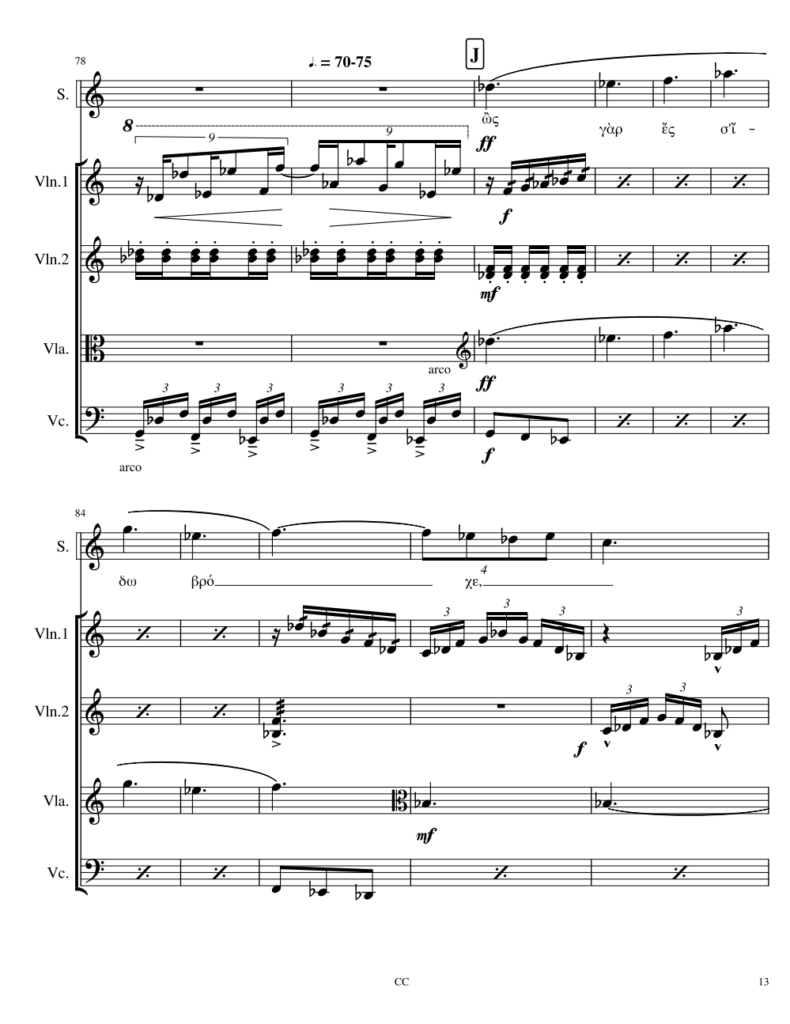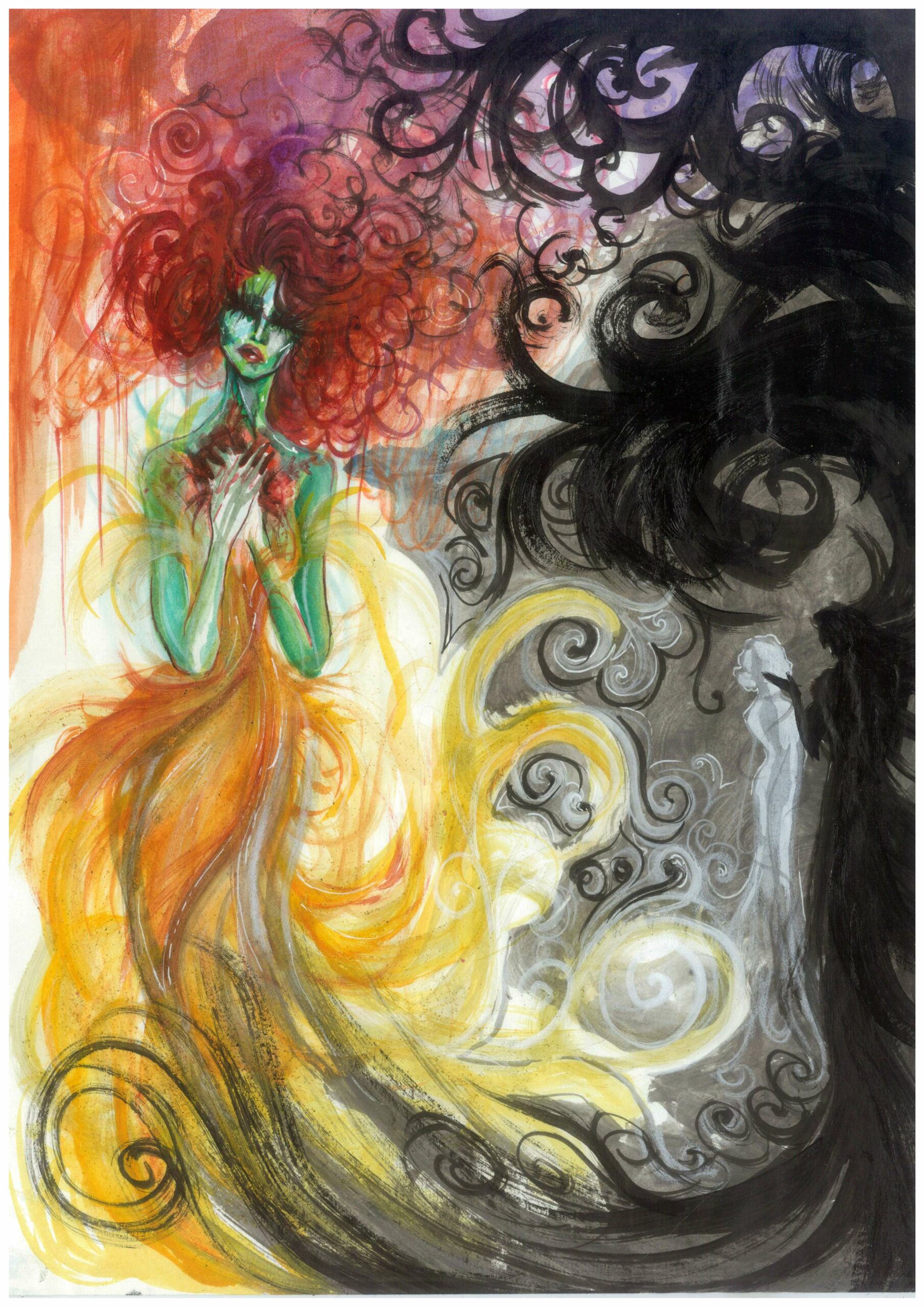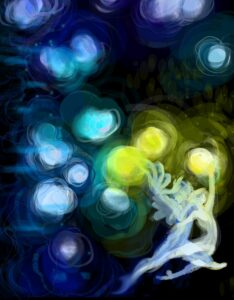For Soprano and String Quartet
2016
(15€ or more) A me pare Uguale agli Dei (in english: That man seems to me to be equal to the gods) is a 8 minutes composition for soprano and string quartet based on the homonym poem written by the ancient greek poet Sappho. It’s a passionate and tumultuous music rendition of the sentiment of extreme jealousy expressed in words in the poem. The soprano will sing in ancient greek.
In the cultural context of the time, different from subsequent eras, we discover lyrics that allude to homosexual relationships with his young students.
The poet had a homosexual love for the girls she educated in music, dance and poetry. This practice was not immoral at that time in the historical-social context; there was a clear separation of the sexes with a vision of women as the master of domestic governance. The vision of eroticism for the ancient Greeks was far from pedophilia and protected the children of both sexes. The woman in Sappho’s compositions did not necessarily have to be “in love” with the recipients of the poet’s lyrics who had the character Sappho as their ‘lyrical self’: they could have been the re-proposal for educational purposes of a range of affective, sentimental, relational, erotic situations.
This lyric has been considered, since ancient times, as a successful description of the physical signs that manifest themselves due to loving passion. Sappho describes everything she feels at the sight of her loved one. It is that man who is similar to the gods for the fact that he can pride himself on the closeness and attention of the woman (this in Sappho’s eyes) and, above all, for his imperturbability (which contrasts with the torment of the poetess).

The Original Text and its english translation
φαίνεταί μοι κῆνος ἴσος θέοισιν ἔμμεν᾽ ὤνηρ, ὄττις ἐνάντιός τοι ἰσδάνει καὶ πλάσιον ἆδυ φωνεί- σας ὐπακούει καὶ γελαίσας ἰμέροεν, τό μ᾽ ἦ μὰν καρδίαν ἐν στήθεσιν ἐπτόαισεν· ὠς γὰρ ἔς σ᾽ ἴδω βρόχε᾽, ὤς με φώναι- σ᾽ οὐδ᾽ ἒν ἔτ᾽ εἴκει, ἀλλ᾽ ἄκαν μὲν γλῶσσα †ἔαγε†, λέπτον δ᾽ αὔτικα χρῶι πῦρ ὐπαδεδρόμηκεν, ὀππάτεσσι δ᾽ οὐδ᾽ ἒν ὄρημμ᾽, ἐπιρρόμ- βεισι δ᾽ ἄκουαι, †έκαδε μ᾽ ἴδρως ψῦχρος κακχέεται†, τρόμος δὲ παῖσαν ἄγρει, χλωροτέρα δὲ ποίας ἔμμι, τεθνάκην δ᾽ ὀλίγω ᾽πιδεύης φαίνομ᾽ ἔμ᾽ αὔται· ἀλλὰ πὰν τόλματον ἐπεὶ †καὶ πένητα†
"That man seems to me to be equal to the gods who is sitting opposite you and hears you nearby speaking sweetly and laughing delightfully, which indeed makes my heart flutter in my breast; for when I look at you even for a short time, it is no longer possible for me to speak but it is as if my tongue is broken and immediately a subtle fire has run over my skin, I cannot see anything with my eyes, and my ears are buzzing a cold sweat comes over me, trembling seizes me all over, I am paler than grass, and I seem nearly to have died. but everything must be dared/endured, since (?even a poor man) ..."
Unfortunately there are no high quality recordings of this piece




